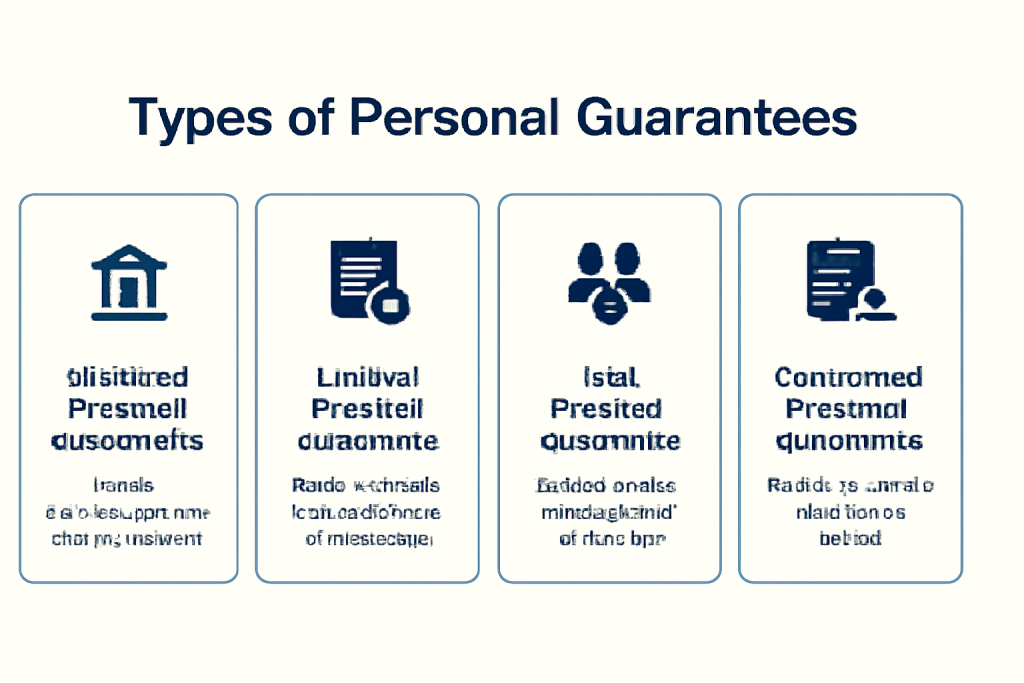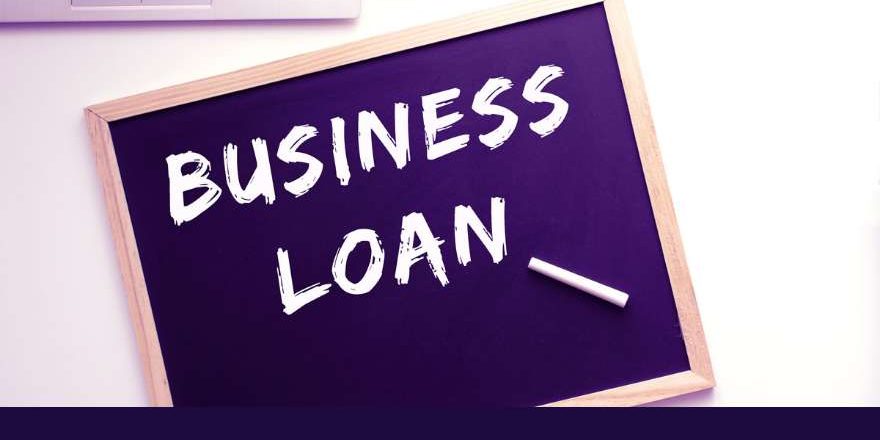Running a business often requires securing financial backing, and one common method of guaranteeing repayment for lenders is the use of a personal guarantee. If you’re a business owner in Canada, understanding personal guarantees in business loans is crucial for safeguarding your personal finances. This guide will walk you through everything you need to know about personal guarantees, how they work, and the implications they have on your business and personal assets.
What is a Personal Guarantee?
A personal guarantee is a legal promise made by an individual (usually the business owner) to be personally responsible for a loan if the business fails to repay it. In essence, if the business defaults, the lender can go after the owner’s personal assets, including their home, savings, or other properties, to recover the debt.
In Canada, personal guarantees are commonly used in Canadian business loans, particularly for small and medium-sized businesses (SMBs) that may not have enough collateral or creditworthiness to secure loans. Lenders require personal guarantees as an added layer of security, ensuring they can recover their funds even if the business itself is unable to meet its financial obligations.
How Does a Personal Guarantee Work?
A personal guarantee for business loan works by tying the business’s debt to the individual who signs the guarantee. Here’s how it typically functions:
- Loan Application: When a business applies for a loan, the lender may require a personal guarantee, especially if the business has limited assets or a low credit score.
- Agreement: The business owner or an executive signs the personal guarantee agreement, which states that the individual is personally liable for the loan amount.
- Loan Default: If the business fails to repay the loan, the lender can seek repayment from the individual’s personal assets.
- Repayment or Settlement: The individual must either repay the full loan amount, or the business owner and lender may negotiate alternative arrangements, such as restructuring the debt or liquidating assets.
It’s important to note that personal guarantees can be unlimited or limited. An unlimited personal guarantee means the individual is liable for the entire loan, including any fees and costs incurred in the process. A limited personal guarantee, on the other hand, restricts the liability to a certain amount or specific terms.
Types of Personal Guarantees
There are different types of personal guarantees that vary depending on the loan terms and the lender’s requirements:

1. Unlimited Personal Guarantee
An unlimited personal guarantee holds the individual personally liable for the full amount of the loan, including any additional interest, penalties, or costs. This type of guarantee places a significant amount of risk on the borrower because it doesn’t place any limits on the amount the lender can seek.
2. Limited Personal Guarantee
A limited personal guarantee restricts the borrower’s liability to a certain amount or a specific portion of the loan. For example, the business owner may only be responsible for 50% of the loan or a predetermined sum, which limits personal exposure.
3. Joint Personal Guarantee
A joint personal guarantee involves more than one person guaranteeing the loan. In this case, two or more individuals may share the responsibility for the loan repayment. This can be beneficial for business partners or co-owners, but it also means that each individual is liable for the full amount of the loan if the other defaults.
4. Conditional Personal Guarantee
This type of guarantee is tied to specific conditions that must be met. For example, a business owner might only be responsible for the loan if certain events, such as the business being sold or the owner leaving the company, occur.
Each type of guarantee offers varying levels of risk for the business owner. While personal guarantees in Canadian business loans can help secure financing, they come with significant financial implications. Before signing any agreement, it’s essential to fully understand the terms and your potential exposure.
Why Lenders Require Personal Guarantees in Canada
Lenders typically require personal guarantees in Canada to mitigate the risk of lending to small businesses that may lack sufficient collateral or creditworthiness. Small businesses often face challenges in securing traditional loans, and a personal guarantee for business loan provides lenders with added confidence that they will be repaid even if the business struggles financially.
Here are the primary reasons why lenders require personal guarantees:
1. Risk Mitigation
For lenders, providing loans to small businesses is inherently risky. Personal guarantees offer a safety net, ensuring that if the business cannot repay the loan, the lender can pursue the owner’s personal assets.
2. Access to Capital
In many cases, personal guarantees make it possible for businesses with limited assets or a short credit history to access the financing they need. By offering a personal guarantee, business owners demonstrate their commitment to repaying the loan.
3. Legal Recourse
A personal guarantee gives lenders legal recourse if the borrower defaults on the loan. Without this form of guarantee, lenders may struggle to recover funds if the business faces financial difficulties.
4. Improved Loan Terms
Lenders may be more inclined to offer better loan terms, such as lower interest rates or longer repayment periods, when they have the added security of a personal guarantee.
5. Building Trust with Lenders
Personal guarantees can foster trust between the borrower and the lender. By signing a guarantee, the borrower demonstrates that they have a personal stake in the success of the business, making them more likely to manage their finances responsibly.
While personal guarantees offer lenders security, they can be a significant risk for business owners. It’s essential to carefully evaluate the risks before agreeing to a personal guarantee and seek professional advice if needed.
Pros and Cons of Personal Guarantees for Small Business Loans
Personal guarantees can be beneficial for both business owners and lenders, but they come with significant risks. Here’s a breakdown of the pros and cons of personal guarantees for small business loans:
Pros:
- Access to Financing: For businesses with limited assets or credit history, personal guarantees can help secure the financing needed to grow or maintain operations.
- Better Loan Terms: By offering a personal guarantee, business owners may secure lower interest rates, higher loan amounts, or more favorable repayment terms.
- Faster Loan Approval: Personal guarantees can expedite the loan approval process, as they provide additional security to lenders.
- Increased Trust: Signing a personal guarantee can build trust between the borrower and the lender, showing that the business owner is committed to repaying the loan.
Cons:
- Risk to Personal Assets: The biggest downside of personal guarantees is the risk to personal assets. If the business defaults, the owner’s personal finances, including their home, savings, and investments, can be at risk.
- Increased Liability: If the business faces financial trouble, the business owner may be personally liable for the full amount of the loan, which could lead to bankruptcy.
- Potential Financial Strain: Fulfilling a personal guarantee can lead to financial strain or even personal bankruptcy if the business fails to repay the loan.
- Stress and Pressure: Knowing that personal assets are on the line can create significant stress and pressure for business owners.
Before agreeing to a personal guarantee, it’s essential to evaluate the risks carefully and consider whether the potential benefits outweigh the financial implications.
What to Do if You’re Facing Financial Difficulty Due to Personal Guarantees
If you find yourself facing financial difficulty due to a personal guarantee, there are several steps you can take to protect yourself and your assets. These steps can help you manage the situation and potentially avoid personal bankruptcy:
1. Consult a Professional
If you’re facing financial difficulties due to a personal guarantee, seeking professional advice is crucial. A consumer proposal in Toronto can be a helpful option for those struggling with debt. Professional financial advisors can guide you through your options and help you determine the best course of action.
2. Negotiate with Lenders
In some cases, you may be able to negotiate with your lender to reduce the terms of the personal guarantee or extend the loan repayment period. Many lenders are willing to work with businesses facing financial distress.
3. Consider Debt Solutions
If you are overwhelmed by personal guarantees and business debt, exploring debt solutions like debt consolidation vs bankruptcy may be a good option. These strategies can help manage your financial obligations and protect your personal assets.
4. Explore Personal Bankruptcy
If you cannot meet your obligations under the personal guarantee, personal bankruptcy may be necessary to discharge the debt. While this has long-term financial consequences, it may be the best option for those facing insurmountable debt.
5. Evaluate Business Restructuring
If your business is in financial trouble, restructuring options such as a consumer proposal may help. Restructuring can provide a more sustainable path forward by addressing the business’s financial issues and reducing the strain on personal guarantees.
By taking proactive steps and seeking professional guidance, you can better manage the financial difficulties associated with personal guarantees.
Conclusion
Understanding personal guarantees in Canadian business loans is essential for business owners who are seeking financing or already facing loan obligations. While personal guarantees can help secure business loans and improve loan terms, they come with significant risks, particularly when it comes to personal assets.





